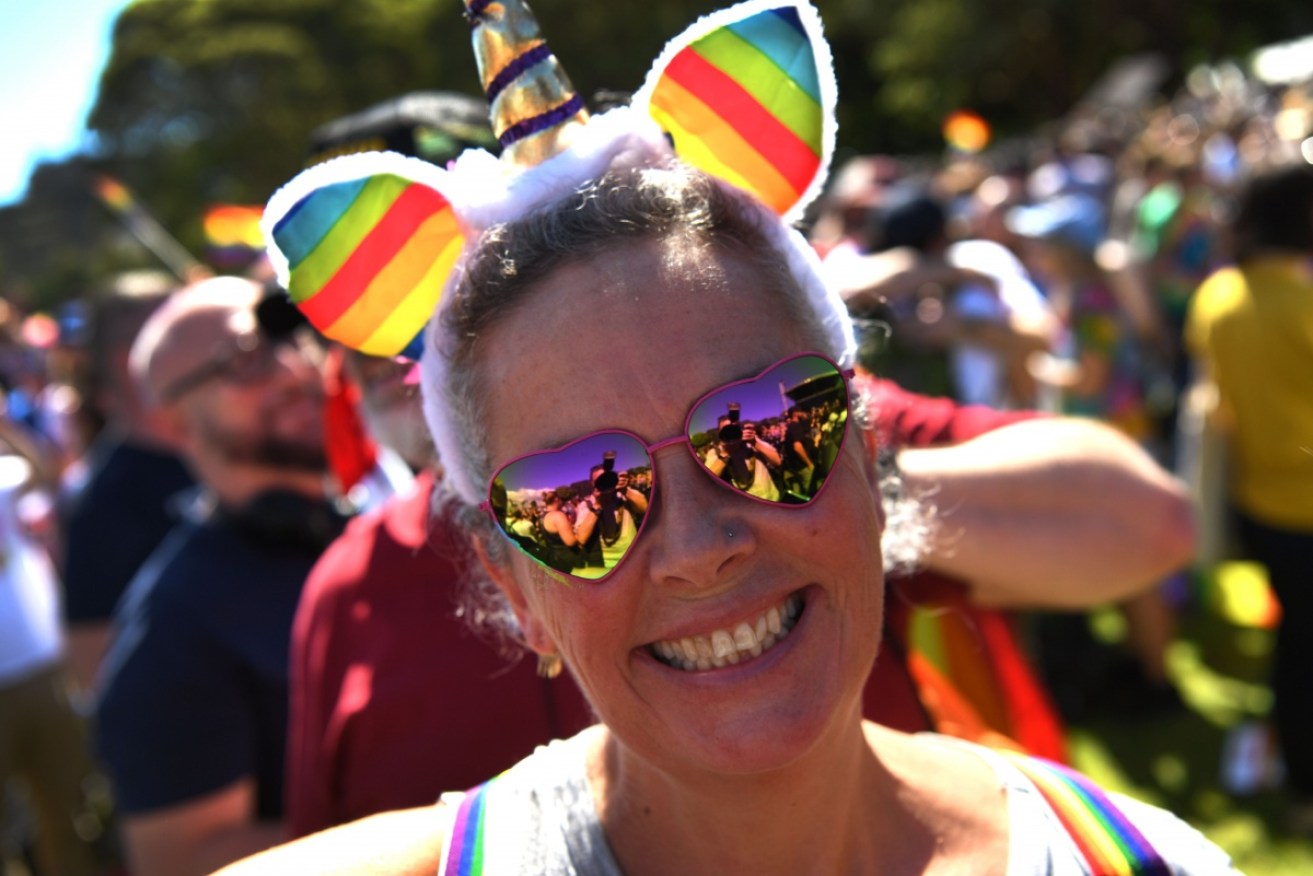On marriage equality, older Australians put the young to shame


Only 71.9 per cent of the 25-29 age group bothered to vote in the marriage vote. Photo: Getty
Young voters of Australia – hang your heads in shame.
Given a rare and precious opportunity to have your say, to have a life-changing vote on an issue that really mattered – in contrast to the obligatory drudgery of, say, a federal election – you let the side down.
You said you cared. But, perhaps you didn’t care enough.
In the marriage equality survey, only 71.9 per cent of 25-to-29-year-olds bothered to vote. The turnout was only slightly better among the two other closest groups – the 20-24 and 30-34 demographics, who both had a participation rate of 72.4 per cent.
On the face of it, those figures appear exemplary. But when set against the national voter participation rate of about 80 per cent, the youth vote begins to look a little embarrassing.
And when you compare the effort of that 20-34 cohort with older Australians, the picture that emerges is – as one young colleague described it – sad.
Almost 90 per cent of people aged 70 to 74 responded to the survey, making them the most active group to participate.
More than 78 per cent of those aged 45 to 49 turned out to vote, and as you rise through the age brackets, the greater the participation: 79.25 per cent, 83.55 per cent, 86 per cent, 88.35 per cent and 89 per cent for Australians aged 75 to 79. Even those 85 and over – many of whom may feasibly be in aged care – managed a creditable 81 per cent vote.
(Hats off, though, to the 78 per cent of the very young, the 18-to-19-year-olds – many of them first-time voters – who managed to get off the couch and down to a postbox.)
In the lead-up to the marriage equality survey, pollsters and media outlets speculated that women and youth would help drive the ‘yes’ vote.
Women certainly did, at 82 per cent. And certainly young people clamoured to enrol for the survey, with 65,000 people aged 18 to 24 enrolling to vote when the survey was announced.
This was, after all, an issue that reportedly mattered to you, an act of democracy that genuinely meant something and would prove a defining moment in Australian society and history.
But, when it really mattered, you were put to shame by your parents and grandparents, aunties and uncles who apparently saw this issue as more important than you did.
I can understand how elections fail to inspire the younger voter – they feel they have a lesser stake in society, or can find no one to vote for among the middle-aged men in blue ties. But surely same-sex marriage was the one thing that could have and should have mobilised a strong vote.
What? Couldn’t find a postbox? Or perhaps young voters assumed that the ‘Yes’ vote was a forgone conclusion. I’m sure the same thing went through the minds of many Democrat voters in the United States last November. And we know how that ended.
And this survey was all about sending a message to Canberra, in part a vehicle to silence the conservatives. The more compelling the ‘Yes’ vote, the louder that message would have been, surely?
It’s a dreadful cliché to write off millennials as lazy and self-absorbed. But when you look at this effort and how much the vote on same-sex marriage should have mattered to them, it’s hard to conclude otherwise.








